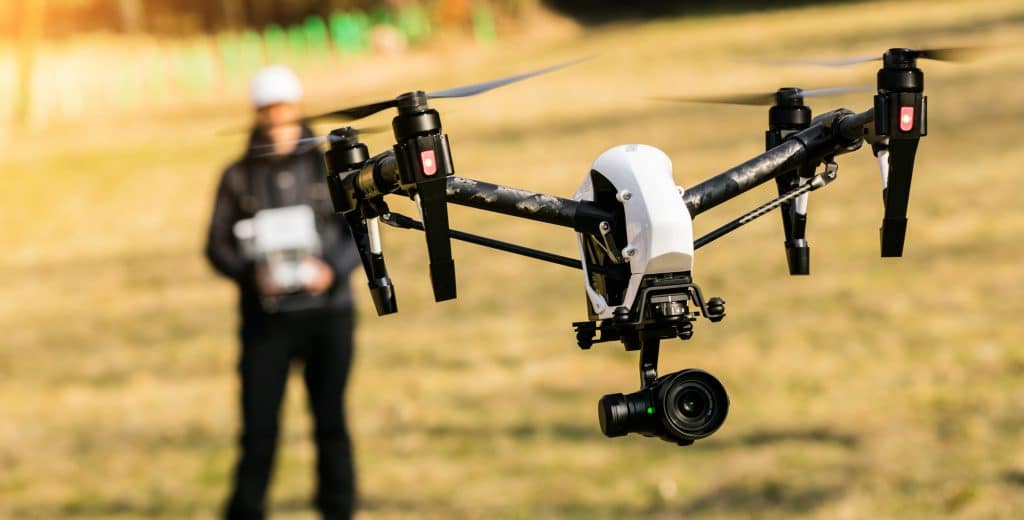With the rapid growth of the Unmanned Aircraft Systems (UAS) industry, there is a need to ensure that new technology is safely integrated into the National Airspace System and that there is a pipeline of qualified professionals to meet the increasing demand. Because of this, and in response to a Congressional requirement, the Federal Aviation Administration (FAA) has established a Collegiate Training Initiative (CTI) that will prepare students for careers in UAS. The UAS-CTI program was launched in April 2020 with a mission to collaborate with selected schools to deliver up to date UAS training tools, resources, and guidelines that will prepare students for careers in UAS and continue to maintain the safety of the National Airspace System.
To qualify for the UAS-CTI program you must be a not-for-profit, two- or four-year, post-secondary educational institution, institutionally accredited by an agency recognized by the U.S. Secretary of Education, and currently offer a bachelor’s or associate degree in UAS; or a degree with a minor, concentration, or certification in UAS.
Currently, the UAS-CTI includes 73 member organizations across 36 states, primarily two-year colleges. Included in the member organizations is Northland Community and Technical College in Thief River Falls, MN. Northland UAS faculty and National Center for Autonomous Technologies (NCAT) Co-Principal Investigator, Zackary Nicklin, serves as co-chair for the UAS-CTI initiative. Northland is home to the nation’s first Unmanned Aircraft Systems Maintenance Program as well as the first Geospatial Intelligence Analysis AAS Degree. Northland is also home to the National Center for Autonomous Technologies (NCAT), which is an Advanced Technological Education (ATE) Center, funded by the National Science Foundation (NSF). NCAT leads the education of the nation’s Autonomous Technologies workforce through a concentrated effort which focuses on expanding education resources to address current workforce demands.
Drawing on NCAT’s extensive resource collection in interactive curriculum content and community forum platform allowing for collaboration, the FAA UAS-CTI saw NCAT as an ideal fit to host the initiative’s resource repository. “A key cornerstone for NCAT is to provide the educational resources for curriculum interactive content, application and exchange of ideas for autonomous technologies across the country. By NCAT serving up the UAS-CTI resources and community forum, we are encouraging two- and four-year colleges to collaborate on creating and updating AT programs and share educational and training resources,” stated Zackary Nicklin, UAS-CTI Co-Chair, Northland UAS Faculty and NCAT Co-PI.
The results of this collaborative working relationship include continuous dialogue with stakeholders to connect with colleges and universities with general industry, local governments, law enforcement, and regional economic development entities to address labor force needs. The FAA is committed to working with UAS-CTI participants to engage and prepare a pipeline of UAS professionals for tomorrow’s innovative workforce. “When the UAS-CTI program launched, the FAA UAS Office of Integration’s first goal was to meet the Congressional requirement by establishing the program and then begin to accept schools into the UAS-CTI. What we quickly learned was the incredible value of networking and growing close relationships with our participating schools. The UAS-CTI has truly become a community and the new repository enables us to not only share important information and resources with each other, but to get to know one another better. We are thankful for NCAT and look forward to growing the program,” shared Diana Robinson, Co-chair of UAS-CTI and Program Specialist for the FAA Unmanned Aircraft Systems Integration Office.
In April, at the FAA UAS-CTI meeting, NCAT presented on the CTI repository website and the resources that serve the community, providing content, curriculum, workshops, presentations and many other resources. Another feature of the UAS-CTI resource repository includes an interactive map that showcases all of the UAS-related programs across the United States. The map, developed by Palomar College for the UASTEP NSF Project highlights institution locations, type of institution, whether they offer a degree or certificate, and the focus areas for their UAS-related courses and programs.
“NCAT is excited to continue to grow this relationship with the FAA and model ways in which academia and government organizations can work together to create resilient partnerships that prepare the nation’s workforce for the future,” stated Nicklin. The UAS-CTI is growing at a rapid pace, adding approved institutions each month. The resource repository will continue to expand as resources are developed and shared across the community.
For more information on the UAS-CTI or how to apply, visit the UAS-CTI Online Repository.


